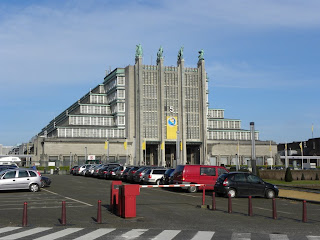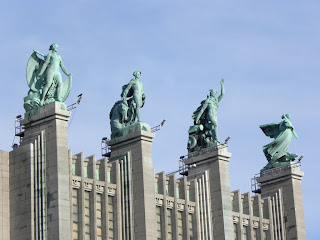 Bathing Pilgrims (Baneshwar) © Tewfic El-Sawy -All Rights Reserved
Bathing Pilgrims (Baneshwar) © Tewfic El-Sawy -All Rights ReservedI can best summarize my verdict on the
Tribes of South Rajasthan & Kutch Photo~Expedition™ as being a
mixed bag. Readers of this blog know that I (in contrast to the majority of other travel photographers who lead photo tours) do not not sugar-coat nor gloss over the results of my photo-expeditions, and that I report the ups and downs on each of these trips. It's unreasonable to expect that a photo-expedition will not encounter disappointments, and realistically managing one's expectations is always sensible.
Most of the team members were women, outnumbering the 2 men and the resulting gender imbalance naturally influenced the group's synergy and dynamics. All of the participants are accomplished photographers in their own right, with different specialties and interests. The group participants were all punctual and extraordinarily adept in engaging people we met during the trip, whether these were tribals or villagers, whether elderly or children, etc. It was fascinating to compare the disparate photo disciplines of the group members, and see the difference in approach of those with fashion/textile design backgrounds, and those with an affinity to portraits or those with a photojournalism bend.
We had two main issues on this photo-expedition. The light was incredibly harsh except for an hour or so in the early morning, and just right for no more than an hour in the early evening. I don't think I saw a single cloud during the 15 plus days of the trip. As most of the villages were at quite a distance from our hotels, we had to leave very early in the morning (5:30-6:00 am was the norm) to catch the soft light for exterior photography, while hoping for interesting interiors for the rest of the day. The other issue was that we were saddled with a guide who was overwhelmed by our photography-related requirements, and who simply couldn't meet them. He was eventually changed by another person in Bhuj who, being a photographer himself, had a reasonable understanding of light issues and knew the area quite well. Due to a local transportation contractor's unintelligent decision, our transport vehicle in the early stages of our trip was inadequate. It was replaced by a more appropriate bus, driven by an excellent operator (who doubled up as a fixer as well) and an attendant who kept us well hydrated with bottles of Bisleri and Diet Cokes!
With hindsight, I would now do this photo-expedition differently. For instance, I would spend the bulk of its duration between Gujarat's Dasada and Bhuj, eliminating a couple of stops in Southern Rajasthan, perhaps even cutting out Rajasthan altogether and flying into Ahmedabad directly from Delhi or Mumbai. I would also increase the price of the photo-expedition to hire 2-3 all-terrain vehicles, which would allow us to penetrate the Kutch interior more effectively than with our large bus. Most of the tribal people have been spoiled by tourists paying for photographs. I was told that a way around that issue is to bring cosmetics, and similar products for the womenfolk.
There were extraordinary highlights on this trip. The tribal Bhil women performing early morning ritual bathing during the Baneshwar
mela (above picture); the eunuchs at the
hijra temple near Dasada, the serendipitous encounters with a group of Jain pilgrims known as
Digambar, and a handful of reclusive Jat women; and spending almost a whole day with the Wadha tribe in Bhirandhiaro. Another captivating event was a Bhil exorcism ritual near Poshina which, being a local affair, was sparsely attended but very intense. In Ahmedabad, the calligraphy at Jama Masjid and the incense burning over the tombs of Ahmed Shah's wives were wonderful to witness.
In terms of camera gear, I exclusively used my Canon 5D Mark II, and used my 28-70mm f2.8 lens most of the time. I also occasionally used my Canon 20mm f1.4 whilst shooting indoors. I forced myself to use my newly acquired Canon 70-200 f2.8 IS, which I schlepped for most of the trip. Eight of the participants used Canon gear, while 2 used Nikons.
Much of our group's photography was unposed and candid, however there were some instances when I -and others- had to set up subjects. I think that many of our most successful photo shoots were in larger villages, as opposed to those where only a few families lived. I have asked the members of this photo~expedition to send me 3-4 of their photographs for eventual posting on this blog's pages.
We had the full gamut of accommodation quality. The top notch Lalit Hotel in Delhi to the rather dusty iLark in Bhuj, from the crusty Darbargadh hotel in Poshina to the delightful oasis Rann Riders Resort in Dasada, run by the capable Mujahid Malik.






















.jpg)
.jpg)














